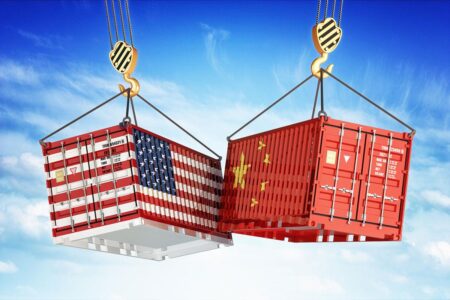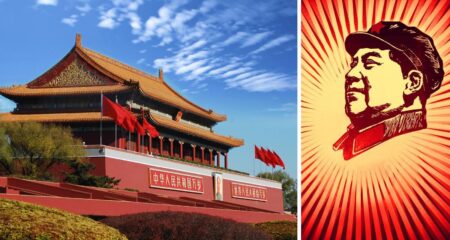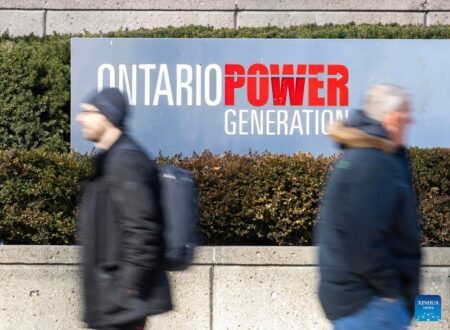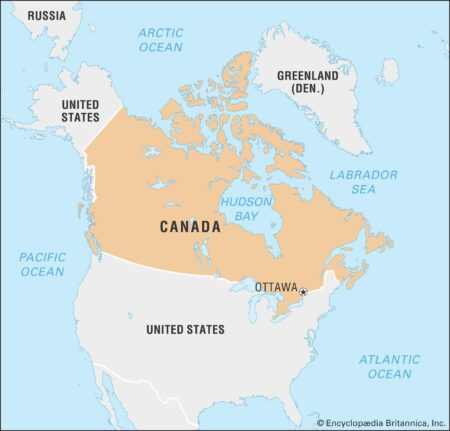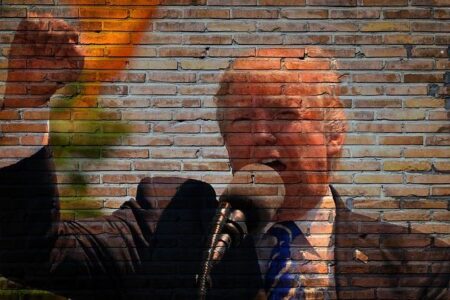The Bank of Canada has chosen to keep its interest rates steady as it carefully evaluates the effects of recent tariffs on the economy. This decision highlights the central bank’s commitment to striking a balance while addressing new economic hurdles.
Browsing: Trade Tensions
Italy’s Prime Minister Giorgia Meloni visited the White House to address growing trade tensions between the U.S. and Europe. The talks aimed at fostering stronger economic ties and resolving disputes, signaling Italy’s role in promoting transatlantic collaboration.
Mexico and Brazil have announced plans to enhance trade relations amid ongoing tariff disputes initiated during the Trump administration. Both nations aim to bolster economic cooperation, fostering growth and stability in the region.
Germany is contemplating the withdrawal of its 1,200-ton gold reserves stored in the U.S., a move seen as a response to rising tensions during Donald Trump’s presidency. This potential action highlights ongoing concerns over international trust and economic security.
China has imposed a 34% tariff on select U.S. imports in response to escalating trade tensions. Analysts debate whether this move is a strategic escalation or a bid to de-escalate relations. The impact on global markets and diplomatic ties remains uncertain.
In a bid to strengthen China’s global standing amidst escalating trade tensions with the U.S., President Xi Jinping urged top executives to champion the nation’s role in upholding an international order based on cooperation and mutual respect.
UK stocks remained largely unchanged amid ongoing concerns over tariffs, prompting a cautious approach from investors. As trade tensions escalate, market participants are closely monitoring developments that could impact economic stability.
France’s ambition for strategic autonomy faces setbacks as the U.S. reinstates tariffs on French alcoholic beverages, a move critics argue undermines European unity. This development threatens France’s economic interests and complicates transatlantic relations.
In a significant shift, China has halted its purchases of U.S. liquefied natural gas (LNG), impacting the global energy market. This move reflects rising tensions between the two nations, as China’s energy strategies evolve amidst ongoing geopolitical friction.
The OECD warns that the Bank of Canada may have to raise interest rates by up to 1.25% in the event of a full-blown tariff war. This increase aims to combat inflationary pressures stemming from heightened trade tensions, impacting economic stability.
Ontario has announced a 25% tax increase on electricity exports to the U.S., a strategic move in response to escalating trade tensions fueled by Trump’s trade policies. This decision aims to protect local consumers and stabilize the province’s energy market.
Canada has launched a dispute complaint against the United States at the World Trade Organization over tariffs on steel and aluminum. The move underscores ongoing tensions between the two nations regarding trade policies and their economic impacts.
As US-China tensions continue to escalate, navigating the complex landscape of diplomatic relations is crucial. From trade disputes to military posturing, understanding the implications of this rivalry is essential for global stability and economic health.
As Trump tariffs reshape global trade dynamics, India stands poised to excel in Asia. With a burgeoning domestic market, a strong manufacturing base, and strategic alliances, India is uniquely positioned to leverage these tensions for economic growth and opportunity.
China has criticized former President Donald Trump’s rhetoric, accusing him of reverting to a “law of the jungle” approach in international relations. This condemnation underscores rising tensions as both nations grapple with complex diplomatic challenges.
China has imposed new tariffs on Canadian agricultural products, escalating tensions between the two nations. This move marks a significant response to Canada’s recent criticisms of China’s domestic policies and trade practices, further straining bilateral relations.
The U.S. has enacted new tariffs on imports from Canada and Mexico, alongside increased tariffs on Chinese goods. This move, outlined by the law firm Clark Hill, aims to address trade imbalances and bolster domestic industries amid ongoing economic tensions.
China has issued a stern warning to the United States against any attempts at containment, particularly in light of the potential for Donald Trump’s second term to reshape diplomatic relations. Tensions rise as both nations navigate a complex geopolitical landscape.
Trade tensions escalate as President Trump threatens Canada with new tariffs on dairy and lumber, sparking concern among Canadian officials. In response, B.C. Premier John Horgan proposes tolls on truckers to mitigate potential economic impacts.
In response to potential tariffs under the Trump administration, Sony and Suntory are proactively building stockpiles in the US. This strategic move aims to mitigate supply chain disruptions and ensure continued access to the American market amidst rising trade tensions.



